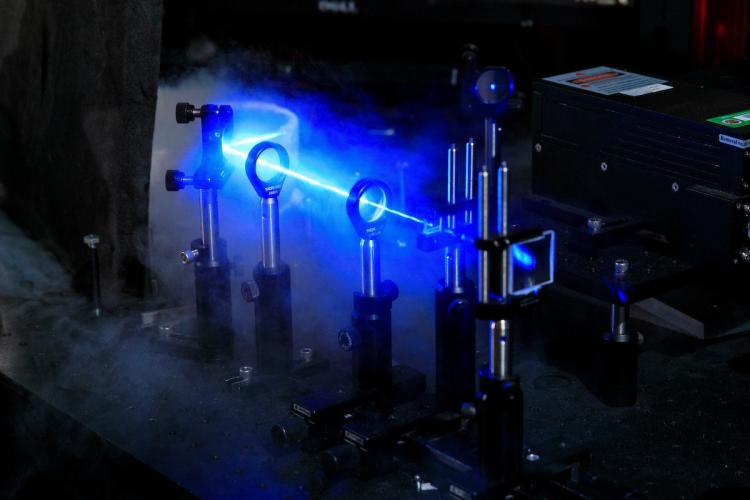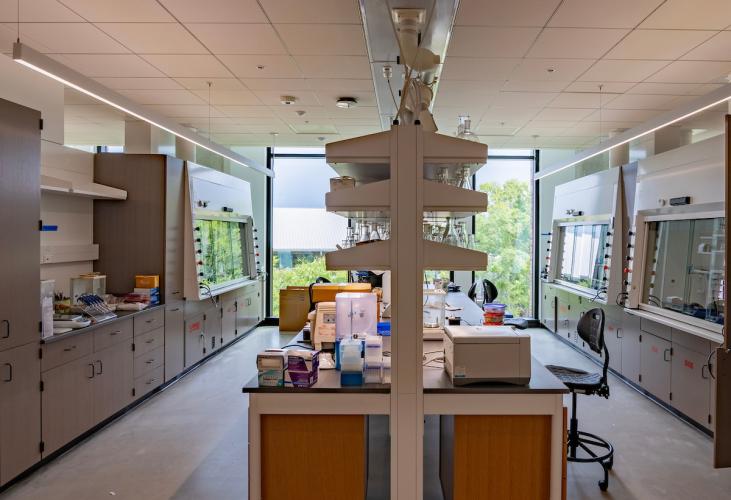add description and link
Providing wind tunnel facilities that are now being adapted for testing quantum communication hardware under turbulent atmospheric conditions.
Supporting large-scale cryogenics research, including facilities relevant to superfluid helium and cryogenic device development.
A university-wide investment of more than $20M, including the new Interdisciplinary Research & Commercialization Building (IRCB), which will house cutting-edge quantum science and engineering laboratories and collaborative spaces.
add description and link
The largest and highest-field magnet laboratory in the world, offering unparalleled opportunities for quantum materials research, device testing, and integration with cryogenic platforms.
In 2024, the College secured two $5M Track-2 awards. These grants are strengthening infrastructure, developing new courses, and creating collaborative research programs in quantum fluids and solids and in microwave quantum circuits/RF systems. A major outcome has been the establishment of a new quantum laboratory at FAMU’s Celensious Building, expanding research capacity and broadening participation in QISE.
Through the Neutron Nexus pilot program, we collaborate on advanced neutron scattering and national lab training opportunities.
Supported by congressional funding, this initiative integrates FCAAP wind tunnels, the MagLab, and FSU Hydrogen Initiative cryogenics, creating a one-of-a-kind environment for testing communication hardware under extreme conditions.

Courses & Curriculum
The following new and planned courses give students hands-on experience in quantum technologies. These courses will contribute to a Quantum Engineering Certificate currently in development, designed to prepare students for careers in this emerging field.
- Quantum Devices and Sensing
- Quantum Algorithms and Computation
- Quantum Fluids and Solids
- Quantum Optics and Networks
- Hybrid Quantum Systems
Student Opportunities
Students at the FAMU-FSU College of Engineering have a wide range of opportunities to participate in quantum research and workforce development. These opportunities not only give students direct exposure to frontier research but also prepare them with the skills and networks needed to become future leaders in the quantum era.
- Research Assistantships – Supported by major NSF and DOE grants, students gain hands-on experience in quantum device fabrication, cryogenics, quantum sensing, and quantum communication experiments.
- NSF ExpandQISE Programs – With more than $10M awarded in 2024, these programs provide stipends, mentoring, and training for undergraduate and graduate students, while also supporting the development of new courses and lab facilities.
- Internships and REUs – Students can participate in Research Experiences for Undergraduates (REUs) and internships at the National MagLab, national laboratories, and partner universities such as Yale, Notre Dame, and the University of Chicago.
- Quantum Engineering Certificate – A new certificate program in development will allow students to earn formal recognition of their training in quantum information science and engineering, complementing degrees across multiple engineering disciplines.
- Outreach and Engagement – Dedicated programs reach students from HBCUs and minority-serving institutions, offering summer internships, workshops, and collaborative training that broaden participation in the quantum workforce.
- Professional Development – Students are encouraged to attend and present at major conferences (e.g., LT30, APS March Meeting, QISE workshops), network with industry and government partners, and participate in career development seminars tailored to the quantum field.

